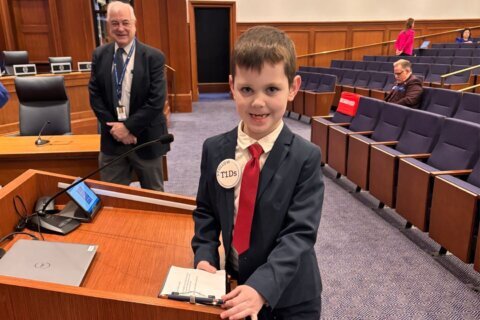Law enforcement agencies in the commonwealth can keep information captured by automated license plate readers, the Virginia Supreme Court ruled Thursday.
Data collected by police using automated license plate readers, such as time and location information, is not considered “personal, identifying information” under Virginia law, justices ruled.
It’s a win for the Fairfax County Police Department, after Harrison Neal, a county resident, began a legal battle in 2015 when his license plate information was recorded by the department at least twice.
What are automated license plate readers?
- Automated license plate readers, or ALPRs, take images allowing police to compare plate numbers against plates of “stolen cars or cars driven by individuals wanted on criminal charges,” according to the National Conference of State Legislatures.
- The units are mounted on police cars, road signs or traffic lights and capture images of license plates.
- Collected data can enhance police abilities to investigate and enforce the law, but the practice raises “concerns that the information collected may be inaccurate, placed into databases and shared without restrictions on use, retained longer than necessary, and used or abused in ways that could infringe on individuals’ privacy.”
The ACLU of Virginia, which filed a lawsuit on Neal’s behalf, argued that the police department’s use of automated license plate readers violated Virginia’s Government Data Collection and Dissemination Practices Act.
But in an opinion by Justice Stephen R. McCullough, the court said that the system was legal because the information being collected does not include extra personal data, such as addresses and phone numbers.
“We concluded that the images of the vehicle, its license plate, and the vehicle’s immediate surroundings, along with the GPS location, time, and date when the image
was captured did constitute ‘personal information,'” Justice McCullough wrote.
The ruling is a reversal of Circuit Judge Robert Smith’s 2019 decision that found the system “provides a means through which a link to the identity of a vehicle’s owner can be readily made.”
Judge Smith’s ruling that the Fairfax County police’s “passive use” of the [automated license plate reader] system does not fall under the exemption to Virginia’s Government Data Collection and Dissemination Practices Act was reversed too.








